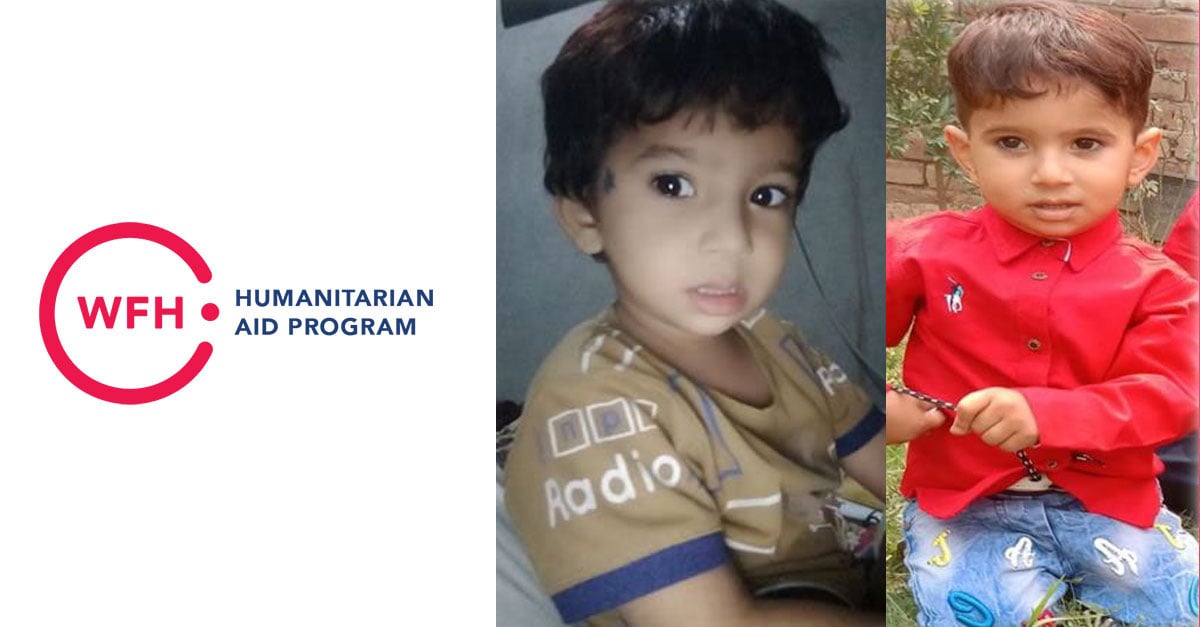In Pakistan, the WFH Humanitarian Aid Program has worked with the national member organization (NMO) and hemophilia treatment centres (HTCs) over many years to raise the level of care provided to PWBDs in the country. This long-term support has come in the form of education and donated treatment product. The decades-long commitment of the Program has been instrumental in giving the local community the self-confidence to build a better support infrastructure for PWBDs. All of this has helped countless families—like that of Muhammad Talal, a 3-year-old boy with severe hemophilia A.
Muhammad comes from a family where members of two generations have been diagnosed with hemophilia. He has five siblings, three of whom are boys, and all have the condition.
In December of last year, Muhammad was admitted to the ER with a severe head trauma, and physicians decided to operate on him to relieve the pressure in his head. Fortunately, because he had already been diagnosed with a bleeding disorder, physicians knew that they would have to provide him with treatment product before performing the procedure. Consequently, he was given factor VIII which was donated by the WFH Humanitarian Aid Program, and the procedure was a success. After being discharged from the hospital, Muhammad was put on low-dose prophylaxis with factor VIII.
Donated factor means that Muhammad’s family has the peace of mind knowing that both he and his brothers have access to treatment products that will allow them to have a more normal life—one that is relatively free of acute bleeds. Thanks to the WFH Humanitarian Aid Program, there are many other families in Pakistan who can also focus on the challenges of child rearing, rather than the challenges of having a child with a bleeding disorder.
Since 2015, over 62 million IUs of factor were donated to Pakistan. Nearly 12 million IUs of factor—and nearly 500,000 mg of non-factor replacement therapy—were donated to the country through the WFH Humanitarian Aid Program in 2022. To find out more about the WFH Humanitarian Aid Program, please click here.
About the WFH Humanitarian Aid Program
The WFH Humanitarian Aid Program improves the lack of access to care and treatment by providing much-needed support for people with inherited bleeding disorders in developing countries. By providing patients with a more predictable and sustainable flow of humanitarian aid donations, the WFH Humanitarian Aid Program makes it possible for patients to receive consistent and reliable access to treatment and care. None of this would be possible without the generous support of Sanofi and Sobi, our Founding Visionary Contributors; Bayer, CSL Behring and Roche, our Visionary Contributors; Grifols, our Leadership Contributor; and Takeda and Japan Blood Products Organization, our Contributors. To learn more about the WFH Humanitarian Aid Program, visit www.treatmentforall.org.













